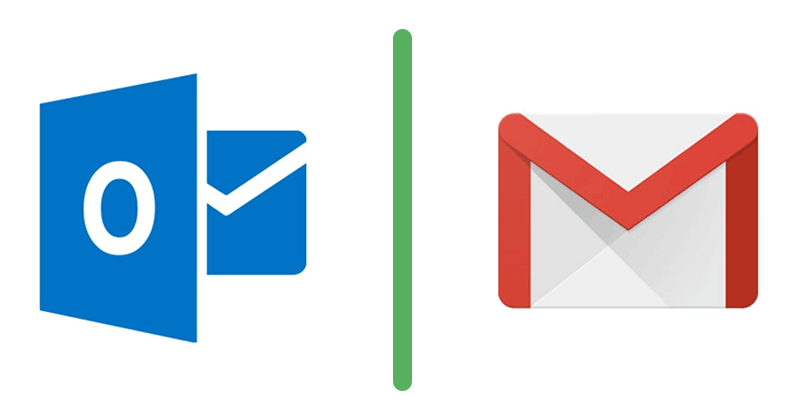Communication skills are vital to many aspects of your life and especially your career. If you can communicate effectively at work, you’re better able to complete tasks and get on with clients and colleagues. You also appear more professional.
But how can you improve how well you communicate?
Here are 7 keys to effective communication in the workplace. You should follow each tip or principle if you want to boost your career and have a more enjoyable time at work.
The best communicators do these things automatically. Fortunately, anyone can get in the habit of communicating clearly and effectively.
Just implement these common-sense strategies to help you convey information to the best of your ability. The accompanying examples should make clear what to do in practical terms.
1. Communicate Face-to-Face

Nothing beats the intimacy that you get with face-to-face interactions. While emails, text messages, social media and video conferencing are efficient, you should meet people in person for long or complex discussions.
Reactions in face and body language convey lots of information quickly, such as whether a person is actually interested in an idea or topic. At least 70% of communication is non verbal according to this research article.
To get the most out of face-to-face meetings, be willing to be expressive in a positive and confident way. Adjust your voice level and tone, change body positions, use your hands and show facial expressions. If you sit there like a robot, you might as well forget the meeting and just send them an email or something.
As an example, suppose you have a work colleague in another team that you’ll be working on a new project with. You should meet in person early on to establish a relationship and sketch out how you’ll work together to get things done.
Go into the first meeting with some ideas about what you’ll talk about and a few questions for them. Show some personality so they get an idea of your style. Pay attention to what they communicate, both in terms of content and presentation.
If you are both open, you should be able to start building a rapport and then be able to work together successfully. For example, you should be able to judge whether your colleague likes meeting you in person and whether you should schedule another get-together soon.
2. Be Concise
Get to the point quickly using few words. That’s how you communicate concisely.
Concise communication is effective because you focus your audience on the key points. They won’t be distracted or lose interest.
When you write, use techniques such as writing in a natural and active voice, eliminating unnecessary words and avoiding repetition.
When you speak or write, get to the main point early. Then expand on that point if it would benefit the audience. Don’t bury the lede as a journalist might say.
Suppose, for example, you have some feedback to report to your team on a new product line.
A non-concise communicator might start with, “We got the results back from a customer survey. The survey asked five questions. In order, these were …” The audience might already be getting bored and lost in detail.
For concise communication, how about this opening: “Customers mostly love the new Zen20, though a couple of operational issues have come up. Our survey found that …”
3. Listen Attentively

Attentive listening or active listening is essential for effective two-way communication. You need to balance the task of contemplating what to say next with fully absorbing what the other person is saying (or writing).
If you can’t follow what someone else is telling you, and you’re just focused on your ideas and thoughts, conversations can quickly degrade due to misunderstandings. Being a good listener lessens the potential for conflict and miscommunication.
Active listening ensures you understand what is being conveyed and are communicating that back to the speaker or writer. In a conversation, let the the speaker know you get what they’re saying by, for example, nodding your head or repeating their statement in alternative words.
If you don’t understand something, interject and ask a question or request that they restate the bit you couldn’t follow. Clarity is always important for communicating effectively.
Also, leave a pause after the other person speaks. That is time for you to formulate what you will say next and gives the other person a chance to add something.
4. Follow Email Best Practices

Email is often just as important for communication at work as talking in person or on the phone. Following some best-practice rules will help ensure your email communication is clear and you don’t look stupid.
Email etiquette is important to follow in the workplace because your writing style reflects on you … Since email has taken over almost every type of communication in the workplace, it has become even more essential to adopt these rules.
Indeed Career Guide
Key tips for good email etiquette are to:
- begin with a clear subject line
- be cautious with “reply all”
- understand your audience
- be mindful of humour
- keep a positive tone
- write concisely
- make action items prominent.
How quickly you respond to emails is a communication skill that’s important but often not talked about. Some emails deserve a quick response, such as when you’re effectively engaged in an email conversion, when it’s from your boss or a client, when there’s a deadline, and when not responding could be holding up someone’s work.
Conversely, it may be a good idea to take your time when you’re emotional, especially when you’re angry. A delayed response can communicate a lack of enthusiasm about something in a polite way. Also take your time when you genuinely need to think or you want to discourage someone from sending so many emails.
Sometimes it’s polite to wait to make it look like you need time to think. A couple of examples are when you reject an application or proposal, or when someone has put a lot of effort into their email and expects a considered response.
5. Manage Everybody’s Time

Some people are unproductive because they waste far too much time on idle chatter and other pointless conversations, including long email exchanges. Don’t be one of them.
Be mindful of your time and other people’s in scheduling meetings and requesting information. Time is valuable.
Getting to the point, and generally being concise, is one strategy for to manage time efficiently. While you don’t want to be overly curt and miss opportunities for human connection, you need to achieve outcomes.
Have some goals in mind when you communicate and focus on them. For example, in a team meeting, you might want to seek agreement about a future approach to sales campaigns. Be sure to bring the matter up early, steer discussion in that direction and ask people’s views before the end of the meeting.
Time is zero-sum. Every minute spent in a wasteful meeting eats into time for solo work that’s equally essential for creativity and efficiency … Schedules riddled with meetings interrupt “deep work”.
Harvard Business Review
For meetings in particular, it can be helpful to list agenda items at the beginning and conclude with action items or next steps. Doing so highlights whether the meeting is worth having at all.
Another tip is to schedule meetings for a short time, say 15 minutes, but ask that people set aside further time afterwards in case discussion goes longer. You should avoid dragging out a meeting just because a certain amount of time has been allocated to it.
6. Ask Relevant Questions

In the same way that you feel understood when someone asks you questions, you should do the same during a conversation in the workplace. Asking relevant questions shows that you’re engaged and invested in the discussion. The speaker should feel as if you’re actually paying attention to them mindfully.
Asking the right set of questions also helps you understand and comprehend the statements being made. However, you need to ensure that you’re not just asking any questions. They should be relevant to the conversation and, hopefully, carry it forward in a useful direction.
Neutral, open-ended questions are also great for addressing sensitive topics, an issue we’ll cover more fully in the next section. For example, you might need to find out from your colleague what happened with a past project they led that was known to have failed. You could just ask in a non-presumptive way that contains no statements, “Looking back, what are your thoughts on Project XY?”
7. Identify Potential Conflicts
The success or failure of a conversation, meeting or email exchange often hinges on how one or two key issues are handled. Careful navigation could help avoid problems such as:
- hitting a roadblock where you can’t agree
- the other person goes into their shell because you have offended or embarrassed them
- you waste time arguing over something that isn’t particularly relevant.
A little homework to identify potential conflicts can be of great benefit. Think through ahead of time to establish potential problems that might arise.
You can choose steer clear of certain issues or skip over them quickly. Or, if they are essential to the discussion, you might have to handle them diplomatically.
Suppose, for example, you are meeting with a team manager and you would really like them to allocate resources to a task you are working on. Hitting them up with a request straight away could be risky.
Instead, you could first explain the work you are doing and some of the challenges. Be clear about the issues faced. Let them start thinking that they might be in a position to help you out before you actually request anything. Maybe, they will may an offer without you even having to ask.
How to Implement Communication Strategies
I hope this article was able to provide some useful insight on how to communicate effectively at work. If there’s any skill you should master in the workplace, it should be communication skills. They can make or break the success of your career and the professional relationships you develop.
Communication is an ability that everyone is always working to master. You can consistently improve over time but there’s always potential for further refinement.
If there was only one soft skill that you could choose to develop in your professional life, what would it be? Almost every relevant study and survey will tell you that nothing could be a better choice than effective communication.
Oxbridge Academy
The best communicators in the workplace are usually experienced, mature workers who have obviously practiced a lot. You may also find some older workers with quite average skills. They haven’t been putting in the work.
To improve your communication skills, look towards excellent communicators who you can emulate. And practice.
Initiate discussions and meetings whenever they may be worthwhile. Get out of your comfort zone in terms of when you communicate and who with. Always try to participate in meetings. And take on communication-centric roles, such as organiser, coordinator and project manager.

One of the most effective communication skills is the ability to negotiate. Some people ignore it and are hopeless. They either disagree or fold too much. Negotiation skill is the ability to reach mutually beneficial agreements with others.
As someone who manages a small team at work, I can vouch for how important communication is. A small misunderstanding between your members will already affect workflow and productivity. One should know when to speak and when to listen so they can act accordingly. I encourage more seminars and team building exercises to improve your organizations rapport and team unity.
Thank you for mentioning e-mail communication. I feel like a lot of people overlook this and some of the more brightest, best communicators I work with are just absolutely terrible at communicating through e-mail, text, or generally online. I feel like more light needs to be places here since we are working online a lot more today than ever before.
Who dreads meetings? Probably anyone who has seen people who disregard the quality advice here. Be concise, get to the point, and listen. A meeting shouldn’t be a monologue, but it should be well-moderated so that the one (or two) persons who ask 3000 needless questions don’t derail things. I think there’s a lot to be said for in-person meetings as you mention too.
I believe email etiquette is very important to avoid miscommunications. So many people lack that in the workplace.